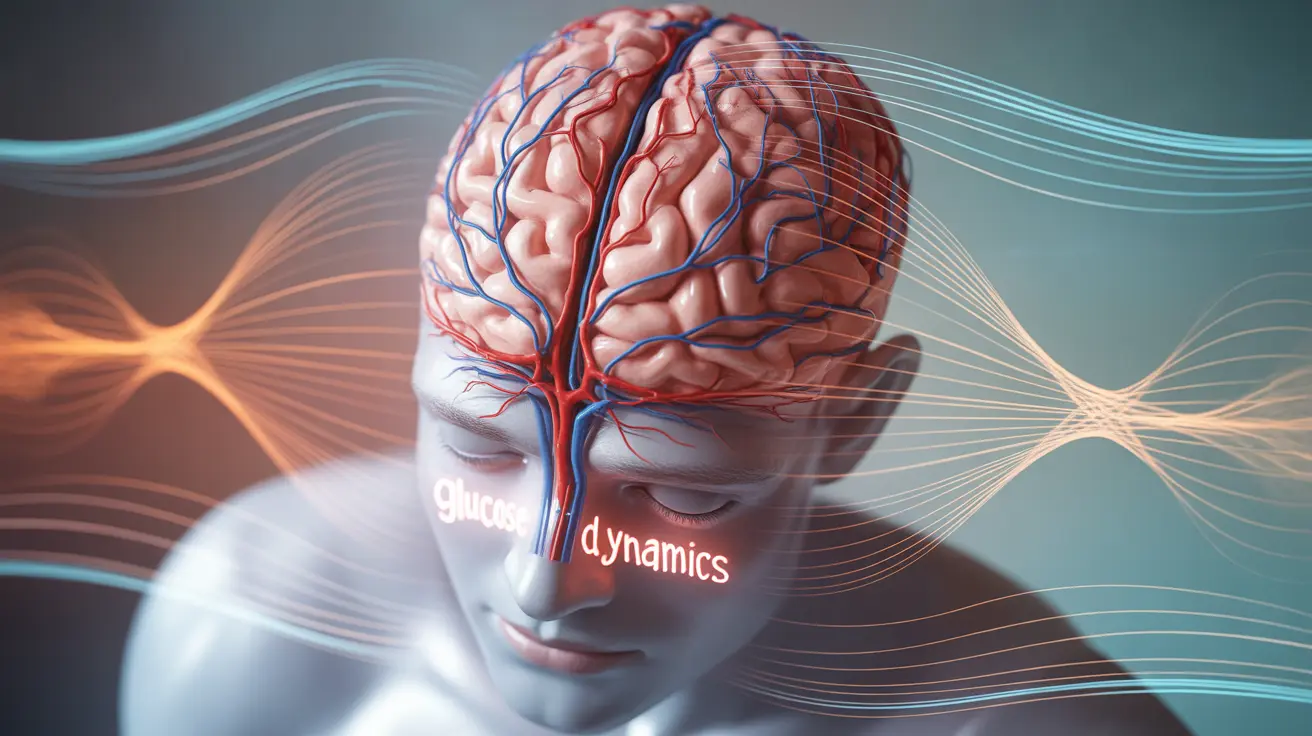If you've ever experienced headaches that seem related to your blood sugar levels, you might wonder about their connection to diabetes. Sugar headaches can indeed be an important signal that your body's blood glucose regulation isn't functioning optimally. Understanding this relationship is crucial for both diagnosed diabetics and those concerned about their blood sugar health.
While headaches alone don't necessarily indicate diabetes, when combined with other symptoms, they can be an important warning sign that warrants attention. Let's explore the complex relationship between blood sugar levels, headaches, and diabetes to help you better understand when to be concerned.
The Link Between Blood Sugar and Headaches
Blood sugar fluctuations can trigger headaches through various mechanisms. When blood glucose levels rise too high or fall too low, it can affect blood vessel function and nerve responses in your brain, leading to headache symptoms.
High Blood Sugar Headaches
Hyperglycemia, or high blood sugar, can cause headaches characterized by:
- Throbbing pain, often on both sides of the head
- Gradual onset that worsens over time
- Increased sensitivity to light and sound
- Difficulty concentrating
Low Blood Sugar Headaches
Hypoglycemia, or low blood sugar, may trigger headaches with distinct features:
- Sudden, intense head pain
- Dizziness and weakness
- Cold sweats
- Shakiness and anxiety
Recognizing Diabetes-Related Headache Patterns
Understanding the timing and nature of your headaches can provide valuable insights into their relationship with blood sugar levels. Headaches that occur consistently after meals or when you've gone too long without eating might indicate blood sugar regulation issues.
Additional Warning Signs
Watch for these accompanying symptoms that might suggest diabetes:
- Increased thirst and frequent urination
- Unexplained fatigue
- Blurred vision
- Slow-healing wounds
- Unexpected weight changes
Managing Sugar-Related Headaches
Effective management of sugar-related headaches often involves maintaining stable blood glucose levels through:
- Regular meal timing
- Balanced nutrition
- Proper hydration
- Consistent physical activity
- Blood sugar monitoring when recommended
Prevention Strategies
To reduce the frequency of sugar-related headaches:
- Avoid skipping meals
- Choose complex carbohydrates over simple sugars
- Include protein with each meal
- Keep healthy snacks readily available
- Track your headache patterns and potential triggers
When to Seek Medical Help
If you experience recurring headaches that you suspect are related to blood sugar, it's important to consult a healthcare provider, especially if:
- Headaches become more frequent or severe
- You notice multiple diabetes warning signs
- Traditional headache remedies aren't effective
- You have a family history of diabetes
Frequently Asked Questions
Can frequent headaches be an early sign of diabetes or blood sugar problems? Yes, frequent headaches can be an early warning sign of blood sugar problems or diabetes, especially when they occur alongside other symptoms like increased thirst, frequent urination, and unexplained fatigue.
How do high and low blood sugar levels cause headaches in people with diabetes? High blood sugar can cause inflammation and changes in blood vessel function, leading to headaches. Low blood sugar can trigger headaches by depriving the brain of necessary glucose and activating stress hormones.
What symptoms often accompany sugar-related headaches that suggest diabetes? Sugar-related headaches often occur with increased thirst, frequent urination, blurred vision, fatigue, and unexplained weight changes. These combined symptoms warrant medical evaluation.
How can managing blood sugar help reduce the frequency of headaches? Maintaining stable blood sugar through regular meals, balanced nutrition, and proper hydration can significantly reduce headache frequency. Consistent monitoring and lifestyle modifications are key components of management.
When should I see a doctor if I experience headaches related to blood sugar changes? Seek medical attention if you experience recurring headaches with other diabetes symptoms, if headaches become more severe or frequent, or if you have a family history of diabetes.




